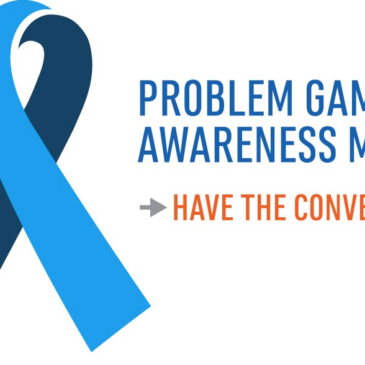Editor's Note: This Editorial from Keith Whyte, Executive Director of the National Council on Problem Gambling, is part of our month-long Special Series on Gambling Disorders.
March is Problem Gambling Awareness Month. The goal of this grassroots campaign is to increase public awareness and educate healthcare providers about gambling addiction. Veterans are a crucial group to assess for gambling problems. The co-founders of the National Council on Problem Gambling knew first-hand the risk factors for addiction and the effectiveness of treatment for military personnel. Monsignor Joseph Dunne was an Army chaplain in WWII and Korea who was severely wounded in combat and received the Silver Star. Dr. Robert Custer oversaw mental health services for the VA.
One risk factor that may surprise civilians is the presence of thousands of slot machines at our overseas military bases. I’ve talked to a number of veterans who developed problems while serving. David Y. joined the Army after the September 11th attacks and was stationed in Korea. He described his first night on base to me:
“I set off to explore the facility and found, much to my surprise, that there was a room full of slot machines with all the bells and whistles of any good casino. […] Well not only did I win a couple of hundred that night, but I discovered something I thought was absolutely amazing at the time. For the time, while I was standing in that game room in that country, I’d forgotten completely about the sadness, fear and tension I was going through.”
He developed significant problems with his gambling but is in recovery today.
David is not alone. Studies consistently find gambling addiction rates among age-matched veterans are significantly higher, and highest among minorities. Rates are even higher among veterans seeking treatment for some other disorder. Finally, a case review of VA patients utilizing mental health services found they were significantly underdiagnosed and undertreated for gambling problems, potentially because of issues of shame and secrecy.
Therefore we encourage healthcare providers, especially those with veteran clients, to ask questions about gambling in March (and throughout the year). Screening for gambling-related history and symptoms is justified because of the prevalence and potential severity of problem gambling, the potential to improve patient outcomes, and the low costs and low risk associated with asking about problem gambling. Screening and brief intervention has been proven to be effective interventions in the allied health fields, and may help you mitigate the potentially severe consequences of this hidden addiction. Having that conversation with your clients may just help save a life.
Go to www.npgam.org for screening instruments and other resources.





